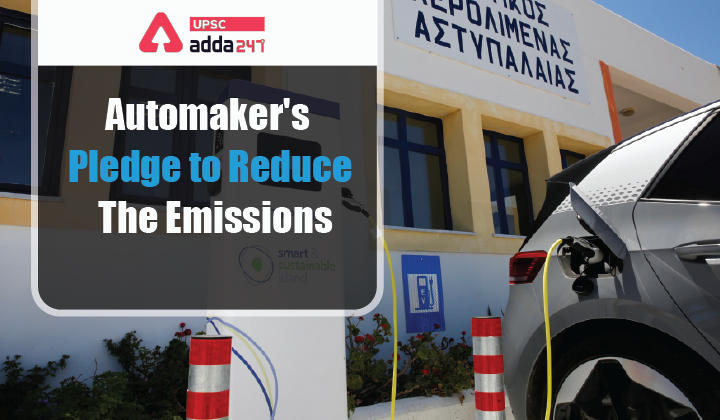”GS Paper – 3: Infrastructure, Indigenization of Technology, Growth & Development”
Why in News?
Recently, at least six major automakers — including Ford, Mercedes-Benz, General Motors and Volvo — and 31 national governments pledged to work toward phasing out sales of new gasoline and diesel-powered vehicles by 2040 worldwide, and by 2035 in “leading markets.”
Background:
With the increasing global trend to move towards green transportation, electric vehicles continue to set new global sales records each year and major car companies have recently begun investing tens of billions of dollars to retool their factories and churn out new battery-powered cars and light trucks.
Who took the Pledge?
- The automakers who took the pledge include the American companies Ford and General Motors, Mercedes-Benz of Germany, and Volvo of Sweden.
- The automakers that signed the pledge accounted for roughly one-quarter of global sales in 2019.
- But India — the fourth-largest auto market in the world — joined the coalition, which includes the United Kingdom, Canada, the Netherlands, Norway, Poland, and Sweden.
Who abstained from taking the Pledge?
- Some of the world’s biggest car manufacturers, including Toyota, Volkswagen and the Nissan-Renault alliance, did not join the pledge.
- And the governments of the United States, China and Japan, three of the largest car markets, also abstained.
Is it a Legally Binding Pledge?
The pledge is not legally binding. But the announcement made by the companies and countries were seen in Glasgow as another indication that the internal combustion engine was on its way out, and battery-powered electric vehicles would rapidly gain road space around the world.
What is a Zero Emission Vehicle?
- Zero-emissions vehicles could include either plug-in electric vehicles or hydrogen fuel-cell vehicles, although the latter has struggled to gain market share.
- Electric cars can still indirectly produce emissions if, for instance, they are recharged with power from plants that burn coal or natural gas.
- But they are generally considered cleaner overall than combustion engine vehicles and do not create pollution from their tailpipes.
Transport Sector’s Contribution to Global CO2 Emissions:
- As of 2018 road travel — including both passenger and freight vehicles — accounted for almost three-quarters of the world’s transport emissions.
- Passenger vehicles — cars and buses — accounted for the larger part of road travel emissions, and 45.1% of total CO2 emissions from transport. (See pie)
- Since the entire transport sector accounted for a little more than a fifth of total CO2 emissions, and road transport accounted for three-quarters of transport emissions, road transport accounted for 15% of total global CO2 emissions.
- Aviation and shipping were relatively small contributors to global transport emissions — 11.6% and 10.6% respectively.
- The contribution of rail travel was negligible.
Challenges Ahead:
- A transition to electric vehicles requires billions of dollars of investment in charging infrastructure and adds to the load on grids already struggling with creaking infrastructure and the transition to renewables such as wind and solar power.
- In some places, they could also be more polluting than combustion models. In Poland and Kosovo, for instance, they generate more carbon emissions than petroleum engines because the local grids are so reliant on coal, the dirtiest fossil fuel.



 TSPSC Group 1 Question Paper 2024, Downl...
TSPSC Group 1 Question Paper 2024, Downl...
 TSPSC Group 1 Answer key 2024 Out, Downl...
TSPSC Group 1 Answer key 2024 Out, Downl...
 UPSC Prelims 2024 Question Paper, Downlo...
UPSC Prelims 2024 Question Paper, Downlo...
